The slightest discomfort in your jaw can hamper your day-to-day life, interfering with basic movements such as talking, yawning, and even eating. In most cases, we tend to neglect it with the expectation that it will magically disappear someday. Such wishful thinking can often mislead you, making you suffer longer than necessary.
The sooner you dig deep into the root cause of the problem, the faster the recovery. You need to discover what’s causing the pain as the reason might not be so apparent. You may have to take a spiritual route to identify the root causes and find out how you can treat your jaw pain using the power of yoga.
What Is the Meaning of Jaw Tension?
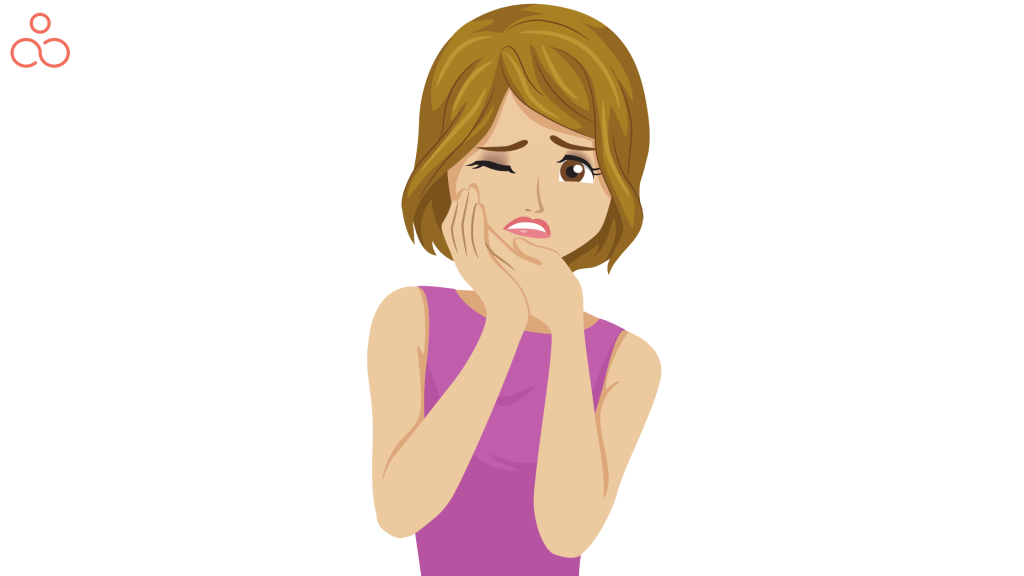
Any form of tension, stress, or anxiety can be the reason for a tight jaw. The degree of tension can arise from a situation, feeling overwhelmed or sad that can often lead to physical tension in your jaw.
It’s not just limited to your jaws, either; it can also cause physical discomfort in other parts of your body, including your neck, ears, face, and shoulders. Of course, other reasons can be the source of tight jaws other than stress or anxiety. Let’s look at it from another angle: tension in jaw spiritual meaning.
Let Your Jaw Speak—Signs and Symptoms
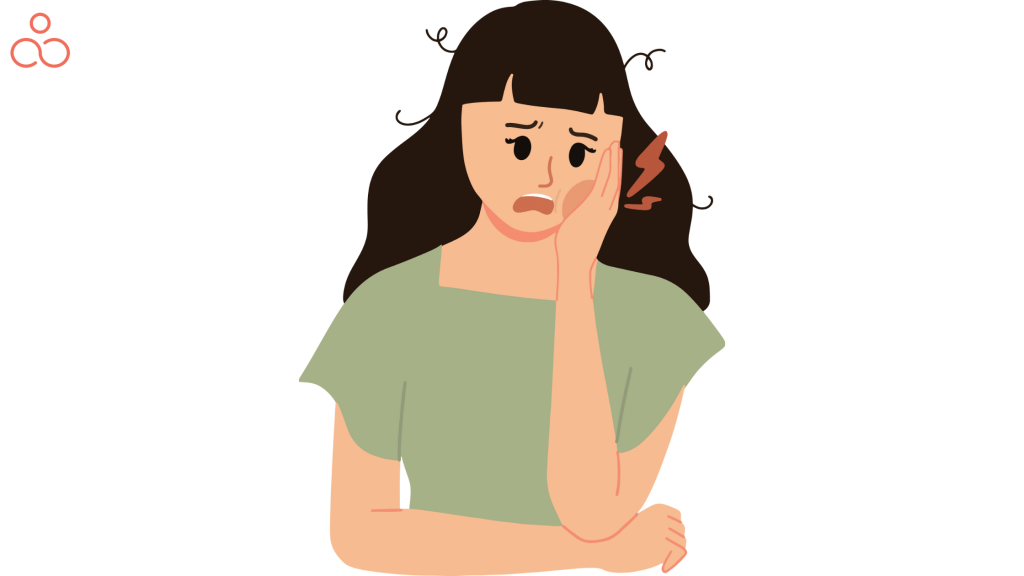
Tension in the jaw area can be linked back to how your feelings and emotions are being channeled out of your body. Simply put, they represent your mental and emotional state. For example, if you are constantly suppressing your feelings instead of expressing them, your emotional barriers can transform into physical tension in your jaw.
Experts suggest that feeling helpless in certain situations also brings about jaw tension. The symptoms of tight or stiff jaws can vary from person to person. Some feel constant pain, such as aches, tenderness, or throbbing. This is most apparent when you move your jaw for eating, laughing out loud, or even yawning.
The tricky part is that the tightness in your jaw does not have a permanent spot; the location of the discomfort can vary. You can feel pain anywhere on your face—nose, mouth, ears, or one or both sides of your face, including your jaws. Moreover, other signs of tension in your jaw may include clicking sounds, limitations in opening your mouth, and locking of your jaw point.
Let’s help you connect the dots. Keep reading to identify the possible causes of your jaw pain and the measures you can take for pain relief.
How Does Jaw Tension Affect You?
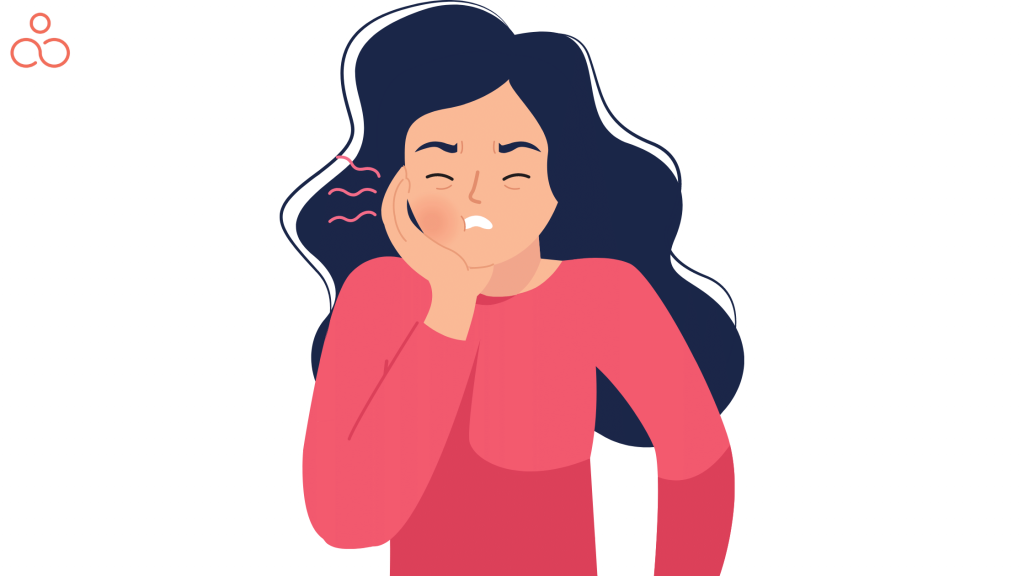
This section will explain the relationship between stress and your jaws—almost like emotion stored in your jaws. Research has shown some rather interesting discoveries that we will be discussing in this article. Did you know that how you react after a negative experience plays a key role in tightening your jaw? Scientists revealed that your first reaction can tense the muscles and tissues around your jaws, eyes, and mouth.
It has also been explained that negative experiences can lead to immediate shortening of neck, shoulder, and jaw muscles. Other experts have discussed that tension in the jaw is directly proportional to mental workload—very common for people who sit in front of a computer for extended hours due to their job requirements. It can lead to stiff neck, shoulders, knots, even wrinkles.
The simplest way to explain this is that the psychological is initially physiological. The biological approach states that behavioral traits from thoughts and feelings work their way into physiological responses. The tension or stress decreases our blood flow, which builds up lactic acid, resulting in decreased oxygen levels. The toxic metabolites in our body accumulate, which then reduces lymphatic flow and eventually lowers immunity.
Connection with Your Pelvic Floor
We have all encountered uncomfortable situations that made us stressed, anxious, and disappointed, and without even realizing it, we subconsciously clench our jaws. This has connections with and can affect the pelvic floor. Read on to learn the facts and dig deep into the root of your problem.
Early Embryo Connection
As mentioned, the connection between the jaw and pelvic starts during the embryonic stage. On the 15th day, called gastrulation, two depressions form on an embryo. One turns into the oropharyngeal membrane that creates the mouth, while the other is a cloacal membrane that builds the reproductive organs like urinary and digestive tracts. Both remain interconnected for life.
Causes
The causes and severity of the tension in your jaw can vary. It can happen all of a sudden or develop gradually and last for a long time. Here is a list of common causes for jaw tightness.
Stress or Anxiety
The first and most common cause is stress and anxiety. Tension in your muscles escalates throughout the entire body when you are dealing with a lot of mental stress. If you tend to clench your jaws, you are at high risk of suffering from tension in your jaw.
TMJ Disorder
TMJ, or temporomandibular joint disorder, is a condition that affects your jaw joints, very common among Americans. There are three basic categories of this particular disorder:
- Joint issues around the cartilage or bone
- Muscle pain when you move your jaw
- Arthritis in your jaw joint
Tetanus
Tetanus is generally caused by bacterial infection from Clostridium tetani. It is also referred to as lockjaw because the tightness of the jaw muscles is the prime symptom. Other symptoms are fever, sweating, muscle spasms, difficulty in chewing, swallowing, headaches, seizures, and fluctuation of blood pressure and heart rate.
If not properly addressed, tetanus can lead to severe infections like pneumonia or blood clots.
Teeth Grinding
Teeth grinding, also known as bruxism, is a condition that is caused by grinding or clenching your jaws. It can happen during the day or while you sleep. People who have the tendency of teeth grinding often do it subconsciously. In addition to tight jaws, bruxism can also cause locked jaw, chipped, flattened or sensitive teeth, jaw pain, headaches, jaw dislocation, damaged cheekbones, etc.
Rheumatoid arthritis
Rheumatoid arthritis is an autoimmune inflammatory disorder that affects up to 80 percent of the muscles and joints of the body. People who have this condition suffer from tension in the jaw, and if it gets too serious, bone loss can also occur.
Osteoarthritis
Osteoarthritis can rarely cause TMJ, but there is a slight chance of it deteriorating the jaw bone, cartilage, and tissues. If this happens, it can be extremely painful. When the padding between your bones wears down over time, it leads to osteoarthritis. Symptoms are similar to RA, but some additional ones are earache, jaw movements, and grinding in the joint.
Treatments
The most effective way to prevent tension in your jaw is to reduce stress and anxiety levels. Some of the stress busters include yoga, conscious breathing exercises, meditation, and low-impact cardio exercises like walking, swimming, and dancing. Try to avoid activities that require excessive movements of your jaws. Eat soft, easily swallowable food. If these remedies don’t help reduce your discomfort, talk to a doctor. Let’s jump into solutions to address jaw tension chakras.
Yoga Poses for Relief
For most sufferers of TMJ, preventive measures with proper self-care can help immensely to alleviate the tightness and tenderness of the jaw. One of the most successful ways to overcome TMJ is to incorporate yoga practice into your daily routine. Yoga aims at reducing muscle tension by strengthening the tissues and restoring muscles. Proper yoga poses impose stretching of your facial muscles to increase mobility in the surrounding area. Let’s look at a few poses to try at home.
Upper Trapezius Stretch
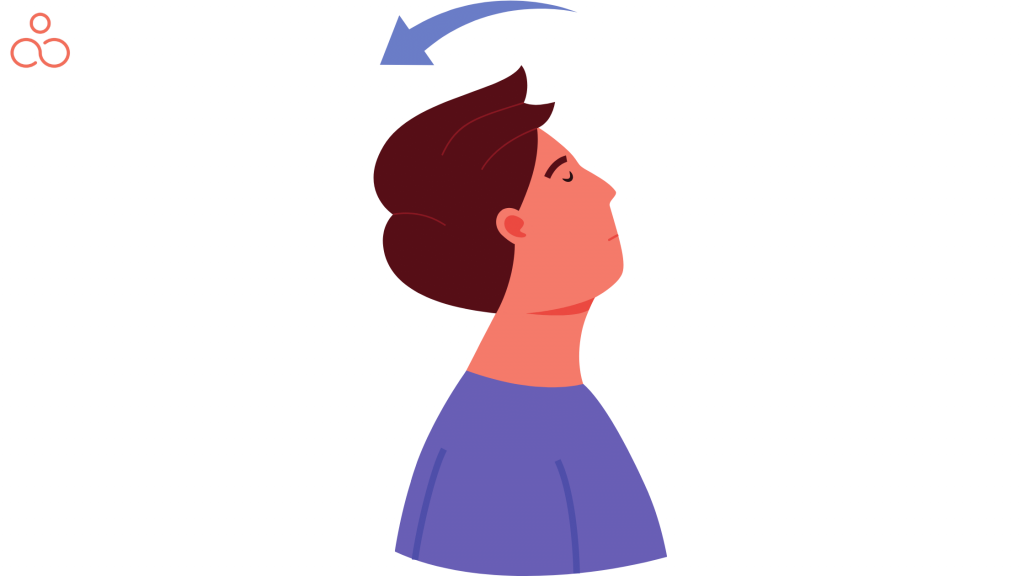
This stretch is designed to improve flexibility and release tension in your jaw. You have to be seated in a relaxed position, then gradually draw yourself upward to a straight pose. Breathe in, and while you exhale, move your right ear toward your right shoulder. Now put your right hand over your head and apply light pressure on your left ear. Gradually pull your head for a deeper stretch but only as long as it’s comfortable. Stay in this pose for 10 seconds before you let go. Repeat the steps for the left side.
Cobra Pose
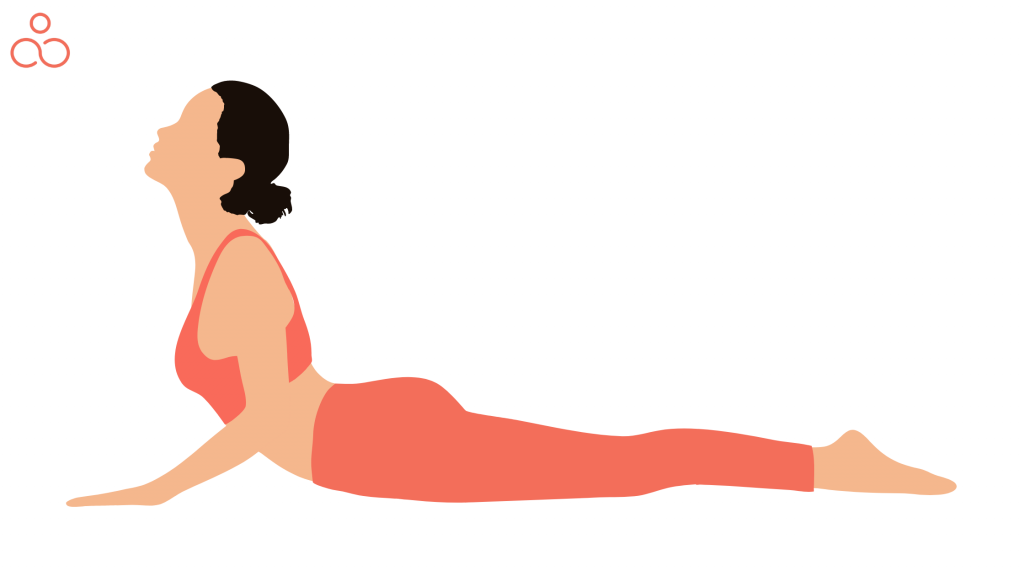
Lie face down on your stomach. Keep your arms folded by your sides, palms facing the ground beneath your shoulders. Apply light pressure on the floor to stretch your back and gently lift your head. If you want to challenge yourself a little more, you can lift your face slightly higher toward the sky. A cobra pose can be modified to cater to your needs, so if you are not too comfortable, feel free to modify it according to your flexibility.
Cat-Cow Pose
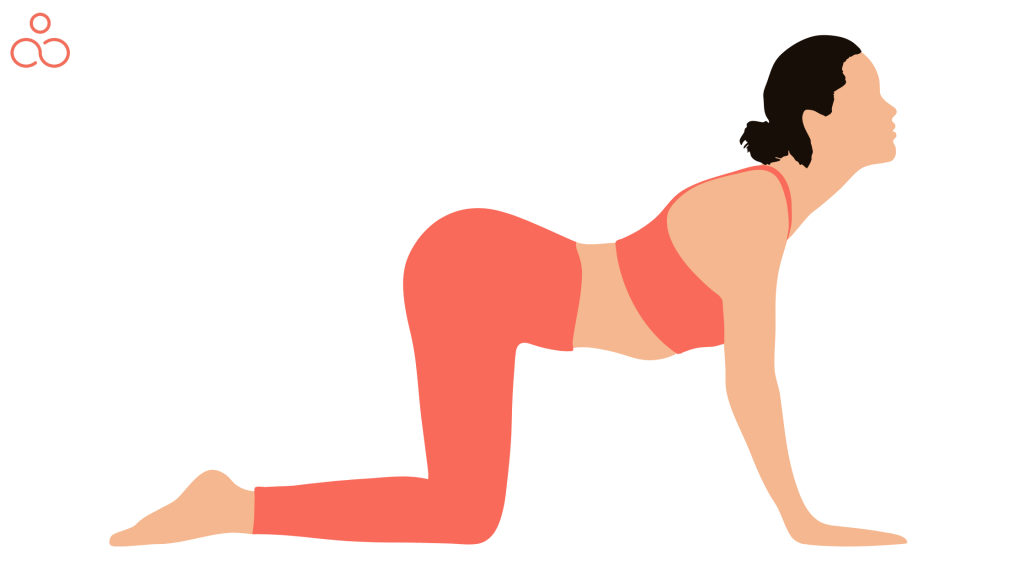
Cat-cow pose offers amazing benefits for your jaw, neck, shoulders and back. It requires you to stretch through your shoulders and back. Get into a tabletop position by placing your hands beneath your shoulders, knees placed below your hips. Breathe in and stretch your spine as much as you can, lowering your stomach. Bring your head forward to form a cow pose. While you exhale, bend and arch your back upward, taking your head towards the floor in a cat pose. Repeat a few times.
Other Treatments
Other than yoga poses, you can also look into other at-home treatments like hot or cold compresses, over-the-counter anti-inflammatory drugs, pain relievers, muscle relaxers. Regular head and neck stretch also helps to loosen the stiffness in your jaw, neck, and shoulders.
Relaxed Jaw Stretch
Jaw stretches if practiced regularly can do wonders for your jaw and neck problems. Start by pressing the tip of your tongue to the roof of your mouth behind your upper front teeth without touching them. Then apply light pressure using your tongue. Gradually open your mouth as much as you can, then gently close it. If you feel any discomfort or excruciating pain, immediately stop. Repeat 10 times.
Goldfish Exercise
Press the tongue against the roof of your mouth in the same manner as the relaxed jaw stretch. Use one of your index fingers and place it on the TMJ and the other one on your chin. Now lower the bottom jaw as much as possible. Gently close your mouth. Repeat this at least 10 times.
Resistant Mouth Opening
Hold the tip of your chin with your right hand. The thumb has to rest under the chin, and the index finger will be wrapped around the front. Gently push your right hand against your jaw. Slowly open your jaw as you continue to push against your chin. Stay in this position for a few seconds before you close your mouth.
Conclusion
The great news is that stress is most likely the culprit if you need to know how to release jaw tension. This means that if you become more aware and connect the dots, you can learn how to control the root cause. If you think about it, as long as you are responding more healthily, instead of simply reacting, you’re taking a preventive measure.
Stress and any other forms of tension will keep visiting you at different stages of your life, so learning to deal with it without causing yourself any harm is the wisest route. You can learn to take things slow, continue to practice yoga regularly (look into kundalini jaw pain), incorporate breathing exercises, and meditate daily. They may seem like small steps for now, but in the long run, you’ll notice the changes in how your body responds.

